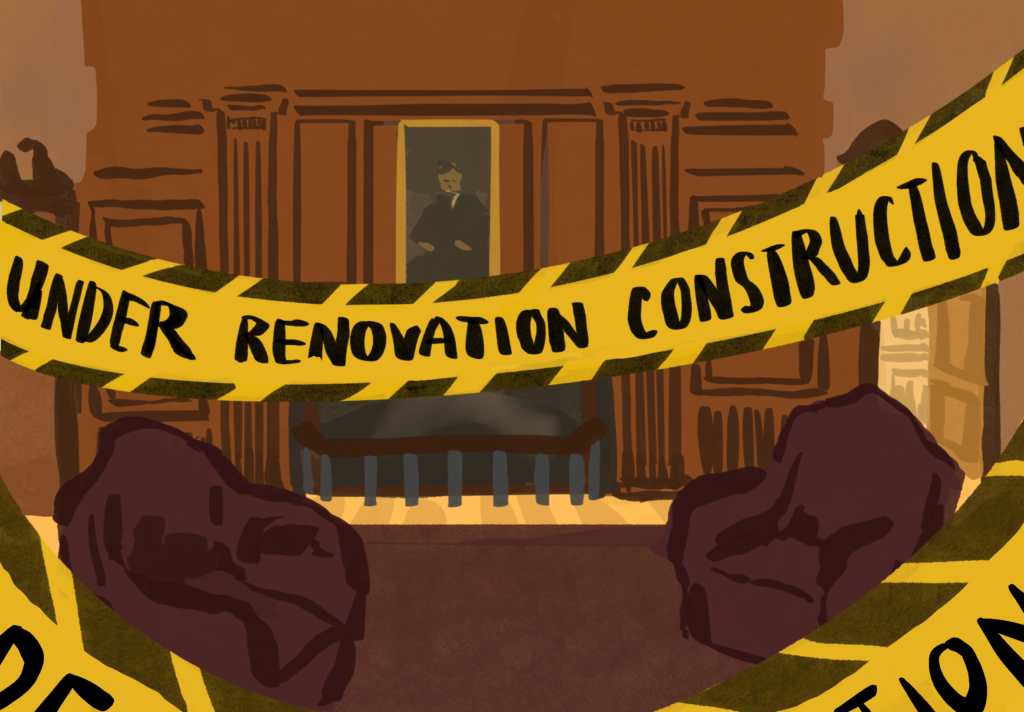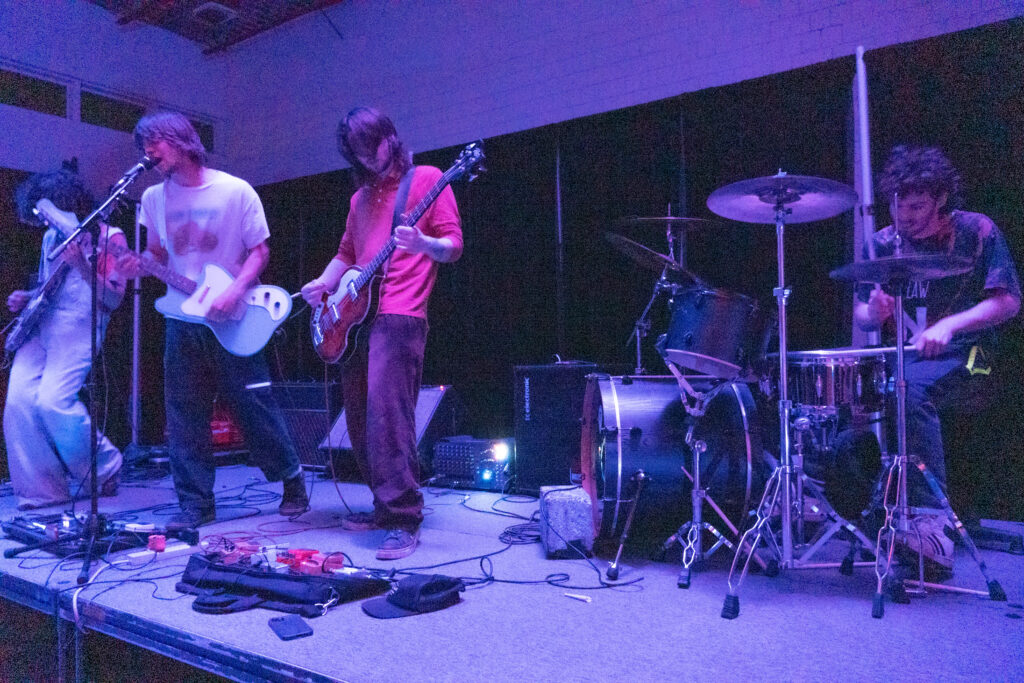Instead of frantic typing in the Andrew Mellon Library, the Reading Room was filled with Arabic storytelling and music on April 26, when the Arabic and Middle Eastern Studies (AMES) Signature Program worked with the library to run an event for Choate students to enjoy Middle Eastern treats and performances.
AMES Program Director Mr. Yassine Benzinane organized the event. He was particularly excited about a visit by Professor Shawkat Toorawah, a professor of Arabic Literature at Yale University, who came to speak about the history of Arabic storytelling. Professor Toorawah focused on five stories from the Abbasid period books that he helped translate. The event planning was centered around his talk, with student music performances and poetry readings worked into the program afterwards. Gideon Forbes from the New York Arabic Orchestra also composed pieces of music on the spot after listening to the stories and performances.
Mr. Benzinane particularly enjoyed two Arabic 350 students’ interpretation of a medieval story from a book called Impostures, originally written by al-Harīrī and translated by Michael Cooperson. A section of book was set in the American Old West as a way to help Western readers better understand stories of the Arab world. “Hallal and Roach interpreted it with the guitar, playing cowboy music. Hallal put on a full cowboy accent, and then he sang parts of it as well, so that was really a lot of fun,” he said.
The primary goal of the evening was to “humanize that part of the world that is underrepresented in our society, but also on our campus. So it gave [students] a different perspective on the Middle East in general and Arab culture as well,” Mr. Benzinane stated.
In addition to the performances, attendees also enjoyed traditional delicacies such as nut-free baklava, a Turkish layered dessert of phyllo pastry around a syrupy filling. Students could choose from Moroccan mint tea, hot chocolate, and karkade, an Egyptian hibiscus tea with numerous health benefits, to accompany the snacks. The baklava was made by SAGE dining, and the karkade was actually made by the attendees in a traditional setup.
Overall, the event was a success, and attendees were able to take advantage of the opportunity to learn a little more about Arabic storytelling and culture. Jane Rak ’23, a student in the Arabic Literature and Translation class, said, “The experience overall was culturally enriching. I enjoyed being able to further my reading and dictation comprehension while enjoying some Middle Eastern cuisine.”



